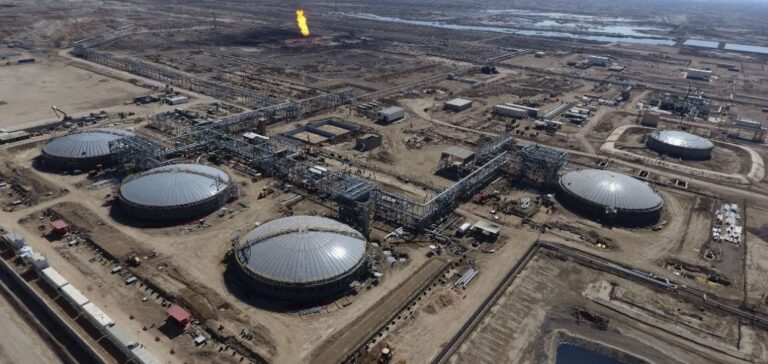Iraq, OPEC’s second largest oil producer, is stepping up efforts to increase its refining capacity.
The country is currently developing two new refineries that will add 450,000 barrels per day (b/d) to its existing capacity of 1.215 million b/d.
These projects aim to reduce the country’s dependence on imported petroleum products and increase its exports of high value-added products.
Strategic projects in progress
The first major project, the Fao investment refinery, in partnership with China, will increase national capacity by 300,000 b/d.
In parallel, another 150,000 b/d unit is being developed in Kirkuk, following its approval by the Council of Ministers in May. These initiatives are part of the government’s strategy to diversify the economy and maximize revenues from refined products.
Infrastructure upgrades
The recent commissioning of a 70,000 b/d distillation unit at the Basra refinery in December 2023, and the rehabilitation of the Baiji North refinery with a capacity of 150,000 b/d in February, testify to the government’s commitment to modernizing its energy infrastructure.
However, despite these expansions, existing refineries are operating below their maximum capacity, with an average output of 980,000 b/d.
Optimization challenges and initiatives
Challenges related to infrastructure management and logistical limitations contribute to this underperformance.
Nevertheless, the Iraqi Ministry of Oil is taking steps to improve operations, including upgrading a diesel pipeline between the Shuaiba depot and the port of Khor Al-Zubair, enabling diesel exports to resume for the first time since 2003.
Self-sufficiency and export diversification
In May, Iraq recorded record exports of refined products, reaching 701,000 b/d.
This increase is partly due to a strategy of market diversification, with deliveries to South Korea, Malaysia, Saudi Arabia and Oman.
This diversification is part of a wider effort to reduce dependence on crude oil exports and boost revenues from high value-added products.
Towards tighter regulation and greater efficiency
The Ministry of Petroleum, under the leadership of Hayan Abdul Ghani, has also announced a 50% reduction in gasoline imports since March 2023, claiming that the country is now self-sufficient in diesel.
These achievements are crucial to achieving the goal of energy sovereignty and security of supply for refined petroleum products.
Iraq’s refining sector is at a crossroads, with major expansions underway, but also persistent challenges.
The closure of unlicensed refineries in the Kurdish region and the requirement for existing facilities to comply with environmental standards are important steps towards better regulation of the sector.





















